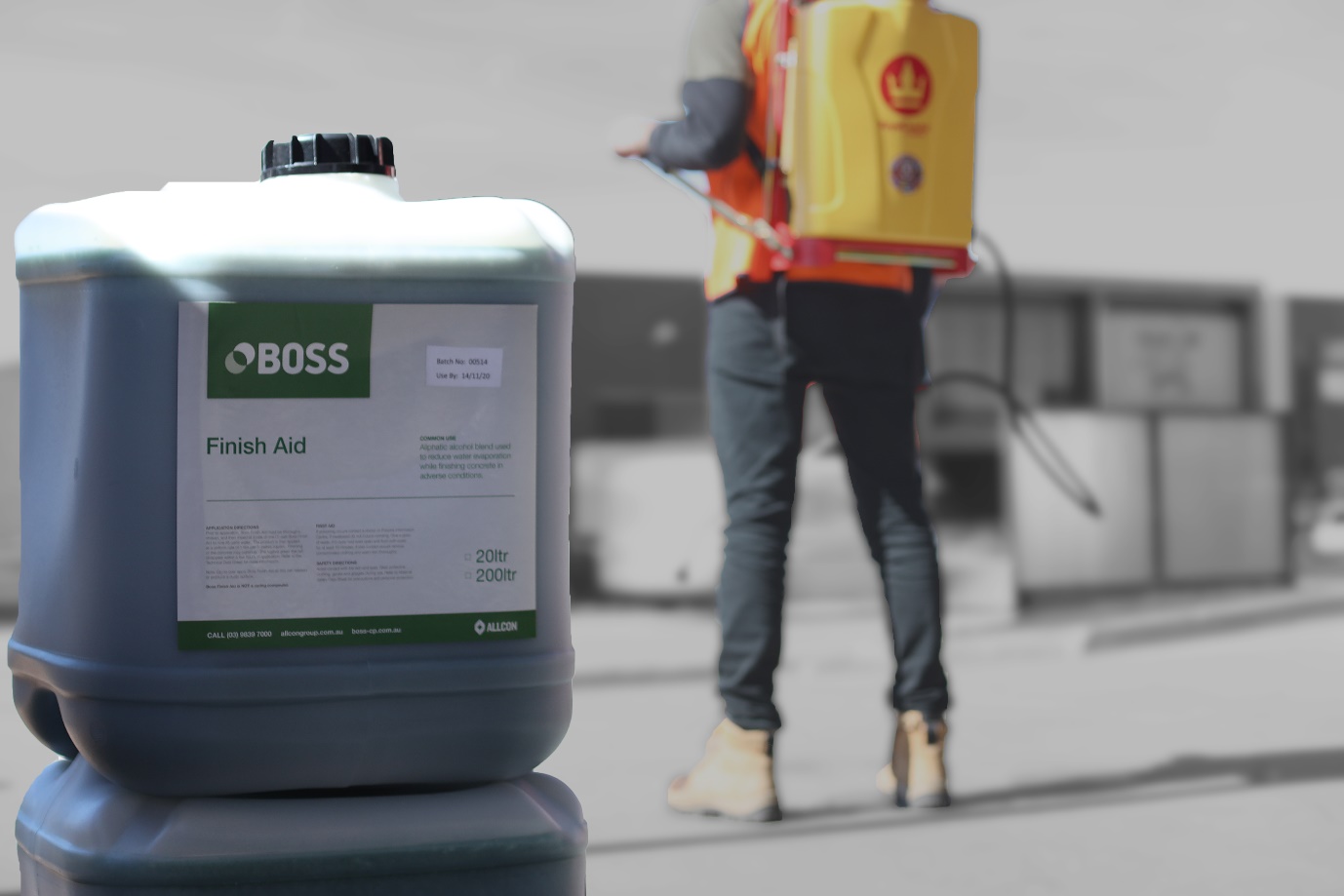
Cracks in concrete can be caused by many things and it is often difficult to pinpoint the exact reason why. A common cause of cracking occurs when concrete is poured on hot, humid or windy days. The concrete may be subject to rapid surface moisture evaporation in such conditions. As a result, early surface crusting and plastic shrinkage cracking can occur.
Wherever possible, it is always advisable to avoid pouring concrete on days where high evaporation is a concern. However, if you’ve got a project deadline to meet, this is not always feasible.
A common tactic used to stop the concrete surface from drying too quickly is to spray water on the surface to help finish the concrete. In small doses, this is usually fine. However, doing so will potentially weaken the concrete. You really want to avoid any accelerated drying out in the first place.
In order to prevent shrinkage cracking from occurring, we need to retard the water from evaporating from the surface. This is where aliphatic alcohol comes in (and no you can’t drink it!)
What does aliphatic alcohol do?
When applied to freshly laid concrete surfaces, aliphatic alcohol retards or reduces water evaporation by up to 80% during the critical stages of the initial set. This water based alcohol solution does not affect the cement hydration. It instead works by applying a thin film surface membrane to the concrete which will slow the evaporation rate and keep moisture within the concrete at optimal levels. This helps to give a decent finish on the concrete. It also significantly improves concrete surface strength, abrasion resistance and durability.
Protecting the concrete surface in this way will stop it from drying out too fast and will assist in preventing plastic shrinkage cracking from occurring.
When and how should aliphatic alcohol be applied?
You will be able to notice if the surface of your concrete is drying too quickly as it will start “crusting” when the surface should instead be nice and shiny. Adding aliphatic alcohol to the surface helps to lock in the moisture so its workable for longer.
Aliphatic alcohol can be applied to a concrete surface after initial screeding or floating and should be reapplied each and every time the concrete is “worked”. It can be reapplied as many times as required during the finishing process.
In winter, you can generally get away with not having to use aliphatic alcohol. But in summer it’s a different story. Aliphatic alcohol should always be used on windy days, even if the temperature is relatively cool.
It is a very forgiving product to use and costs around 10c per sqm per application, so you can definitely be liberal with it. Given that it is so easy and affordable to use, it’s well worth taking the time to apply it. While it won’t completely stop cracking, it will certainly help to prevent it and will lessen the chance of you having to come back for rectification work.
It is important to note that aliphatic alcohol is NOT a concrete curing compound. It is a curing aid. It will have no impact on already hardened or finished concrete.
PRO TIP: Aliphatic alcohol comes in a concentrate. Most manufacturers recommend a mixture of 1 part aliphatic alcohol to 9 parts water. So 2L of aliphatic alcohol concentrate to 18L of water gives you a total of 20L of product. But in our years of experience as concrete pros, we’ve learned that a 5 to 1 ratio works better. If you go with the 9 to 1 ratio, the solution tends to evaporate too quickly as it’s too thin.
Need expert advice on how and when to use aliphatic alcohol? Talk to the team at Allcon
We’re a family business with over 100 years collective experience in specialist concrete construction products, so we know the hard truths about concrete. Call us on 1300 255 266. Or click here to get in touch.
